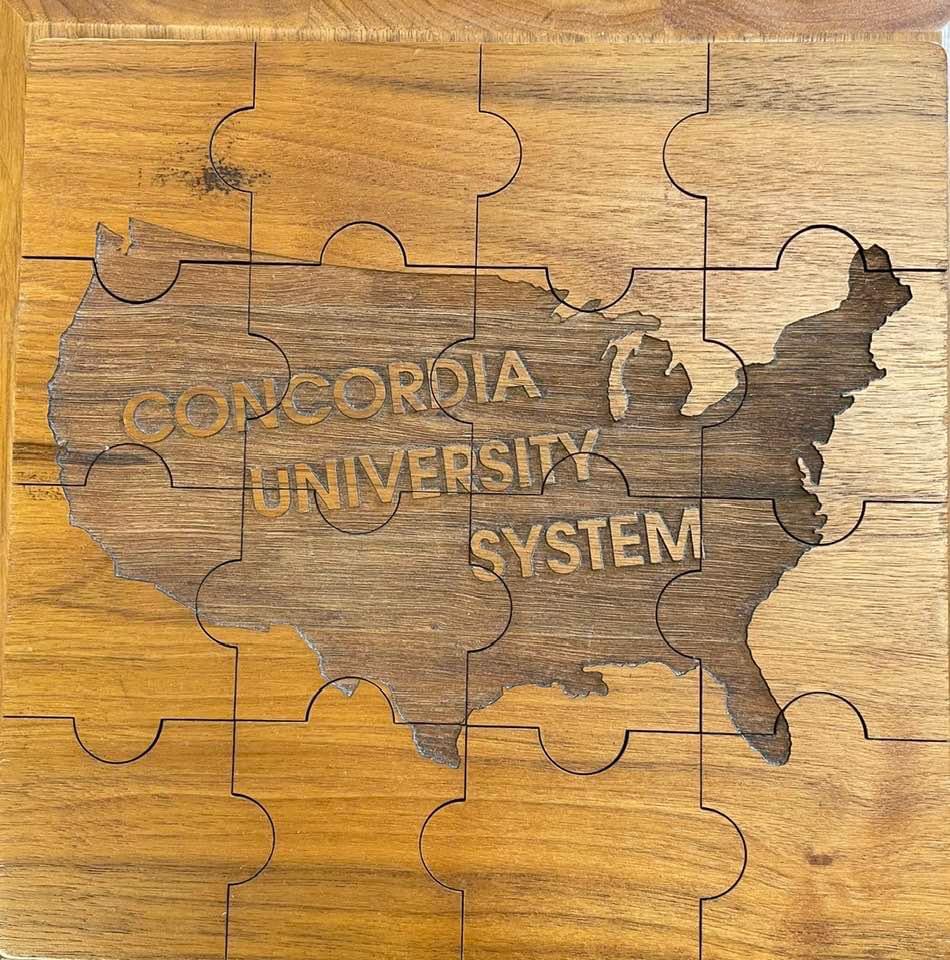I am inspired by the original vision of forming a Concordia University System, a collection of distinct, regional Lutheran higher education communities/colleges/universities that are faithful to the Scriptures, grounded in the Confessions, collectively and individually working to support the mission and objectives of the Synod, and serving as a partner and support for the work of local congregations and their families.
Each school is doing the following differently, especially in contrast to the other higher education options. They are compelling places that:
Prepare future church workers;
Provide Christian families an exceptional and distinctly Lutheran higher education for their children and an alternative to secular and sectarian counterparts (especially at a time like this, when the data seems to suggest that 70% of the Christian high school students who go to a state school will leave the church before they graduate);
Equip laity with a solid education and to be faithful witnesses in future vocations and stations in life;
Offer Lutheran and other Christian faculty a context where they need not muzzle their faith but are free to embrace their callings with Christ-centered excellence.
Offer staff the opportunity to use their many and varied gifts (legal, financial, custodial, technical, counseling, and so much more) to support a mission that closely aligns with their convictions.
Provide a faithful witness and solid higher education grounded in truth, beauty, and goodness to students who do not yet have a church home.
Looking back at the 1962 LCMS convention documents, before the formal start of the CUS, it was inspiring to read about research regarding expanding the program at Bronxville, expanding the teacher education program for women at Concordia St. Paul, establishing a synodical school in the south, exploratory analysis about the possible launch of other Lutheran colleges in San Francisco and Colorado, along with another study for the viability of a higher education institution in the southeast. That is all in one convention!
There are no guarantees about the future of any current Lutheran university, just as there are no guarantees about the future of any Lutheran congregation, K-12 school, or our individual lives. The same was true in 1962. Yet, people were focused on expanding the mission, impact, and reach in Lutheran higher education, which is how I approach Lutheran higher education today.
“For such a time as this…”
I see this as a time to be bold but humble, refusing to be deceived by a theology of glory even as we move forward with confidence and hope, preparing, planning, committing our plans to the Lord, and beginning and ending in prayer.
It is a time for us in the church and Lutheran higher education to partner, collaborate, admonish, support, encourage, equip, and proclaim.
It is a time to fully invest in Lutheran higher education communities that regularly point all to the Lamb of God who takes away the sin of the world, equipping people for lives of learning, service, and leadership in their families, churches, communities, workplaces, and across the globe.
It is a time to support and raise up new Concordia faculty devoted to teaching, equipping, and engaging in different forms of scholarship that promise to be an immense blessing to the church and world.
It is a great time to secure, expand, and perhaps launch more Lutheran Christian higher education communities where students and faculty are free to indeed search for and cultivate truth, beauty, and goodness, even as we appear to be entering a time in our culture where fewer such forums will exist.
Some efforts will fail, and it will be painful at times. Some will succeed. Some will call for adjusting to the context and situation while being unswerving in our confession. We will make mistakes, even big ones, and not even seeing them until weeks, months, or years later. Sin will stain our best efforts and intentions. Still, other efforts have the promise to lead us into mission-aligned opportunities that exceed our limited imaginations and expectations. That is the long legacy of American higher education more broadly (check out David Labaree’s The Perfect Mess: The Unlikely Ascendency of American Higher Education for greater insight into this pattern).
Even amid the thorns and thistles of service this side of heaven, what a joy, honor, and struggle it is to serve in Lutheran higher education for such a time as this. The evil one is at work to undermine our efforts, even as our own sinful nature detracts and distracts us from the work. Yet this is such a noble and inspiring quest. We will and do have trouble, but God grants us the ability to take heart, knowing that Jesus has overcome the world, knowing that on the rock of that confession in Matthew 16:18, God built the church and the gates of Hades will not overcome it–not a guarantee of temporal success but a grounding in an unbreakable promise and a divine reality.
